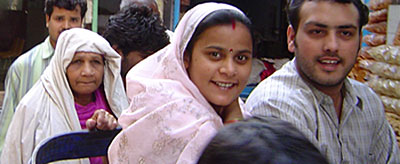
In late summer 2001, while I was living in South Beach, a young French couple rented a room in my house for a month. One day Adrian was looking over my bookshelves, particularly my large collection of travel books, when he said to Melanie, “Jeff must travel a lot.”
At that point, I felt that I had to speak up and tell the truth. “No, I don’t travel much at all. I just buy a lot of guidebooks.”
Guidebooks have been my first purchase when thinking about traveling somewhere. Since there’s hardly anywhere I don’t want to go, I buy guidebooks even in anticipation of a trip decades away. Paging through a travel guide is a form of entertainment, an attempt to satisfy that curiosity about the world.
I think my very first guidebook purchase was sometime around the age of 12. I remember being at Walden Books at Rivergate mall just north of Nashville and getting that slim, green Michelin Guide to Paris. I didn’t make it to Paris until I was 18 but I vividly recall tracing the walks along the maps and learning about the Musée de Cluny; I was a strange boy.
What I enjoy about guidebooks are the descriptions of places, the contextual info. I skip all those pages about transport, lodging, and food. Sometimes, that means I’m skipping three-fourths of the book. Those are practicalities that arise in a different phase of travel planning. Yet, those details – updated by diligent, poorly paid souls slogging from hostel to hotel – are the essence of the guidebook. So, I’ve found myself seeking out other sources to prepare me for my travels or my fantasies of setting foot someday on a distant soil.
I like to learn. I like to learn about the world. Is that a passion?

As a librarian, I had easy access to a large research collection. For a trip to India, I read William Dalyrmple’s City of Djinns and Bamber Gascoigne’s The Great Moghuls. I even found an enchanting book, Sadhus: Holy Men of India by Dolf Hartsuiker, that I obtained through interlibrary loan. That combination, along with a few other resources, really enhanced my experience riding on the back of a rickshaw along the jammed, narrow streets of Old Delhi. Rather than thinking about the pain in my backside from sitting on a bouncing narrow bench, mental images from my readings of India’s astonishing history mixed with the living culture moving all around me.
But most people don’t have access to research collections or would even known which books to read if they did. Guidebooks often do a very good job of referring readers to other books and that’s one of my favorite features of guidebooks. But who has time to read the best 40 books on Malaysia or even the best three?
The Internet offers lots of sources but, again, it’s time-consuming to filter through all the travel sites that are simply fronts for booking reservations. For each good blog such as Travelvice or Life on the Tibetan Plateau, there is a deluge of travel blogs with photos of Uncle Joe smiling over his steak at Cabaña Las Lilas.
There surely will be the emergence of even more Net-based resources that will help people prepare for a more enriching experience during their travels. But, the question is how will those resources be structured? How will they differ from and enhance existing resources available to travelers? How will they go beyond the limited coverage that can fit into a guidebook but also not be overwhelming?
November 1st, 2007 at 9:22 pm
Great post.
best,
e
November 2nd, 2007 at 12:18 am
Hey Eric, thanks!